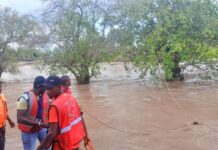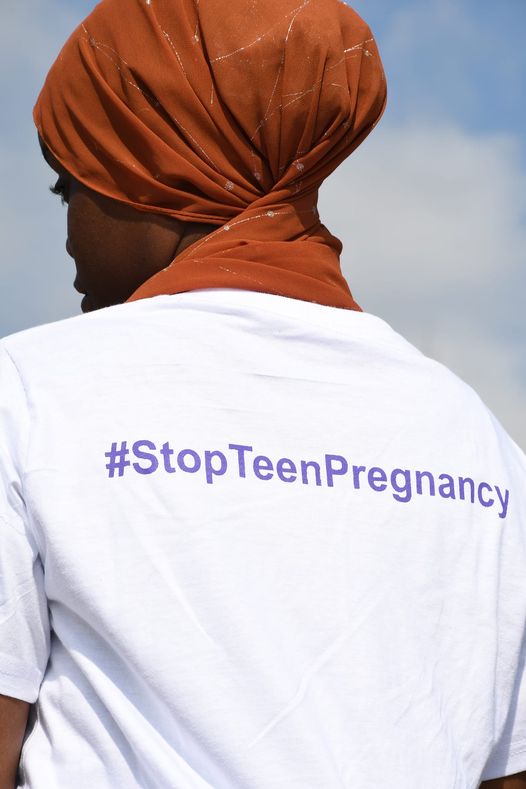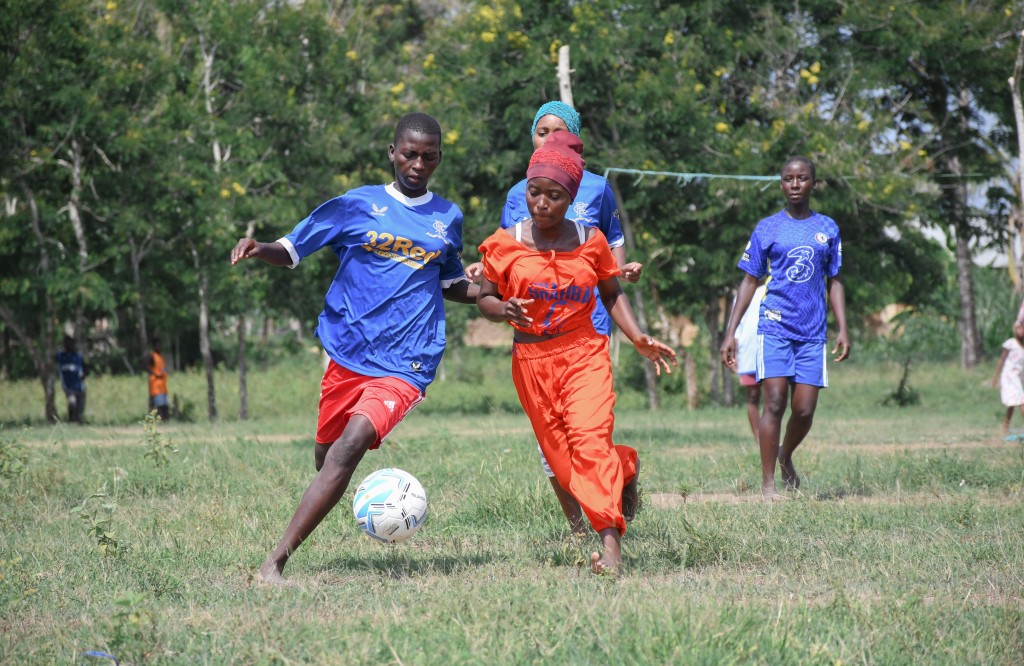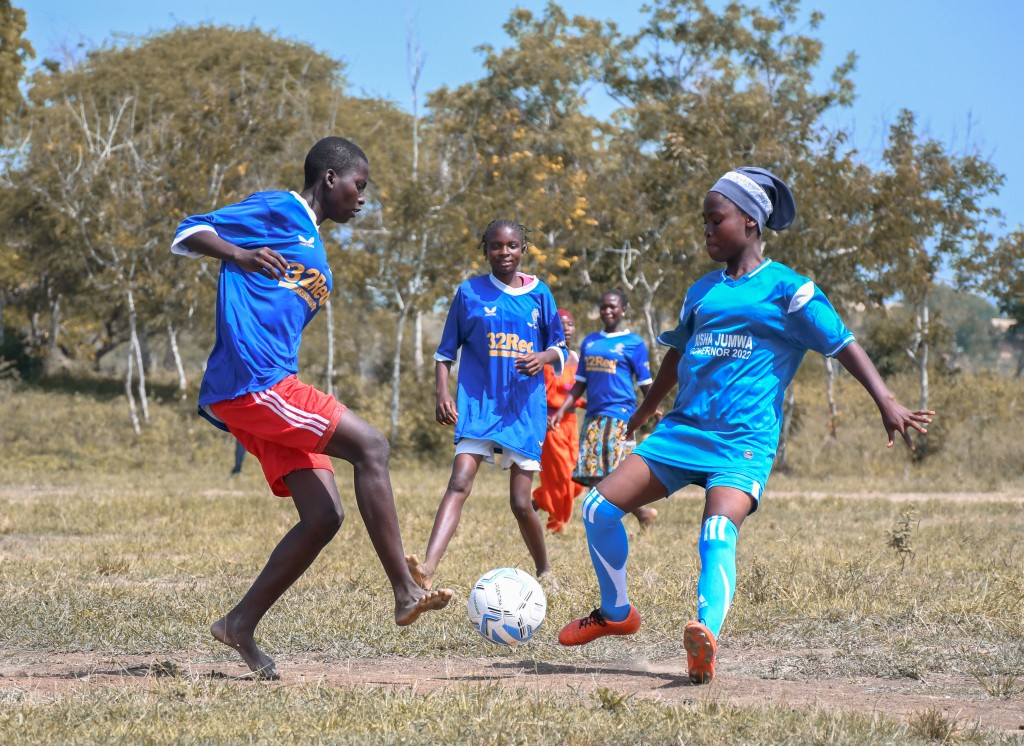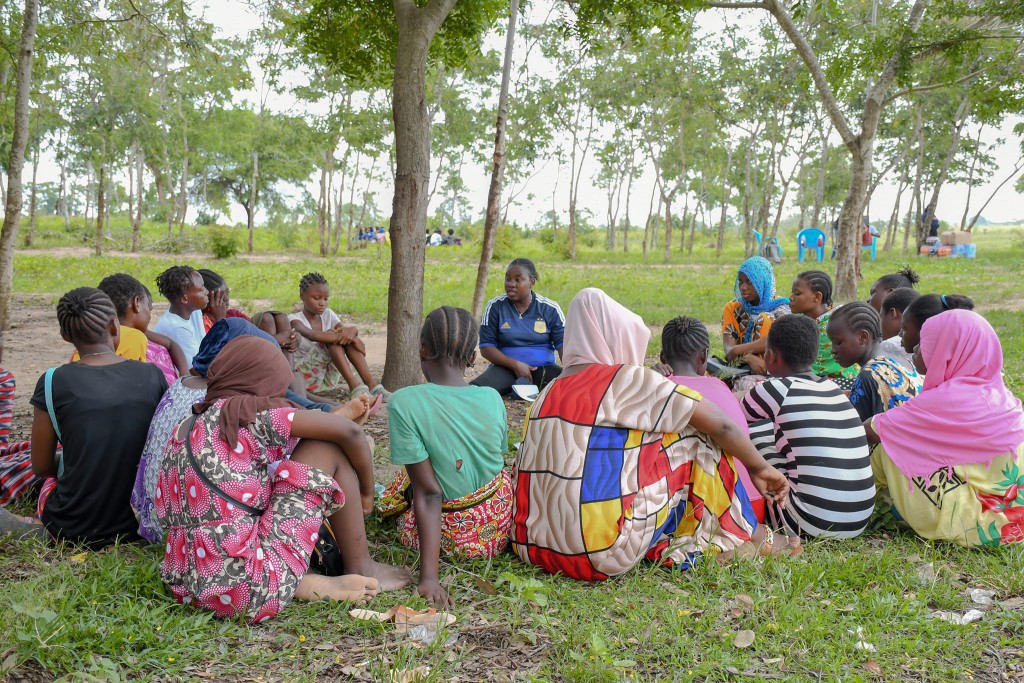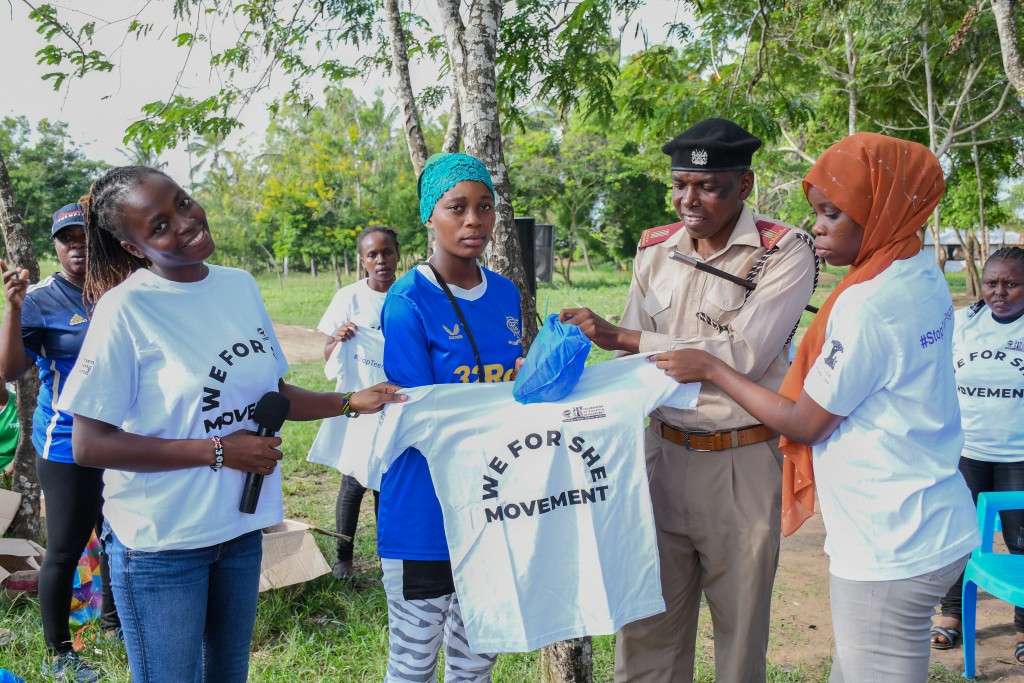Teenage pregnancies continue to be a hindrance to girls’ education.
The Kenya Demographic and Health Survey (KDHS) 2022 reveals that 15 percent of women aged 15-19 in the country had ever been pregnant by the time the survey was being conducted, and Mombasa County is not exempted in the numbers.
According to the survey, 11% of girls aged 15-19 in Mombasa County had been pregnant.
To bring this percentage down, a group of young women in Mombasa County have been engaging young girls in a bid to prevent teenage pregnancies in the county.
The ‘We for She Movement’, comprised of seven young women aged 22-27 years has taken it up as their role to prevent teen pregnancies in the county and keep young girls in school.
The group which is among the first young women feminist movements in Mombasa County will be turning one year old in December.
Among activities that the group uses to engage young girls is the use of sports, particularly football.
The football matches are used to bring young girls from the local communities together.
The Movement is comprised of girls drawn from Nyali and Kisauni sub-counties.
We for She Movement has also been carrying out mentorship programs for young girls and even holding sensitization sessions that provide young girls with insights on how to prevent teen pregnancies.
“During the International Women’s Day celebrations that were held at Maunguja Technical College, we partnered with the County government to talk to girls, mentor them, and even give them pads which are currently very expensive. The pads help keep girls in school and not meet classes during their menstrual cycle,” said Mercy Lorna Kendi who is the group’s Project Manager.
They also teach girls about menstruation and menstrual hygiene.
According to a survey conducted by Procter & Gamble and Heart Education one out of four girls do not associate menstruation with pregnancy.
“We not only talk to them about menstrual hygiene but also Sexual and Gender-Based Violence (SGBV); and what to do in case they experience or know someone who has experienced SGBV. We also mentor them on how to be leaders so that they become their own voices,” said Mercy Lorna.
Together with other feminist groups in Mombasa, ‘We For She’ had a workshop under the Women Gaining Ground movement organized by Akili Dada and Collaboration for Women in Development.
The workshop’s main aim was to sensitize the groups about feminist leadership and the importance of women being knowledgeable about the space they are in.
The organizers also shared with the groups some knowledge and opportunities for young women groups.
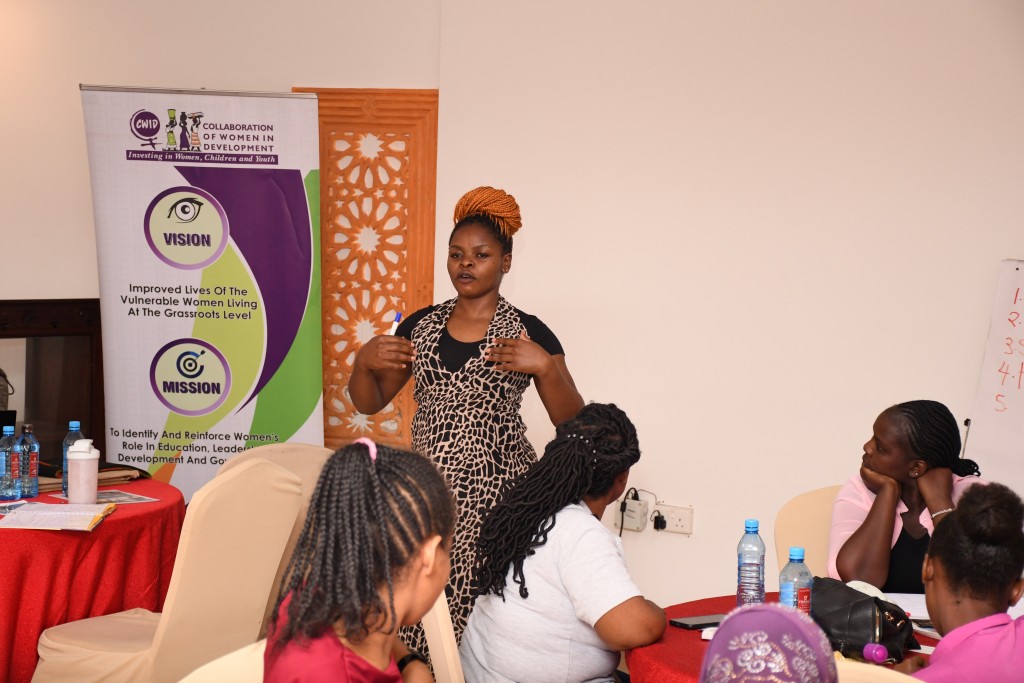
We for She Movement, Young African Grassroot Women Movement (YAGWOM), and ‘I am a Star Campaign’ members attending a Women Gaining Ground (WGG) workshop organized by Akili Dada and Collaboration for Women in Development./STEPHEN OMONDI 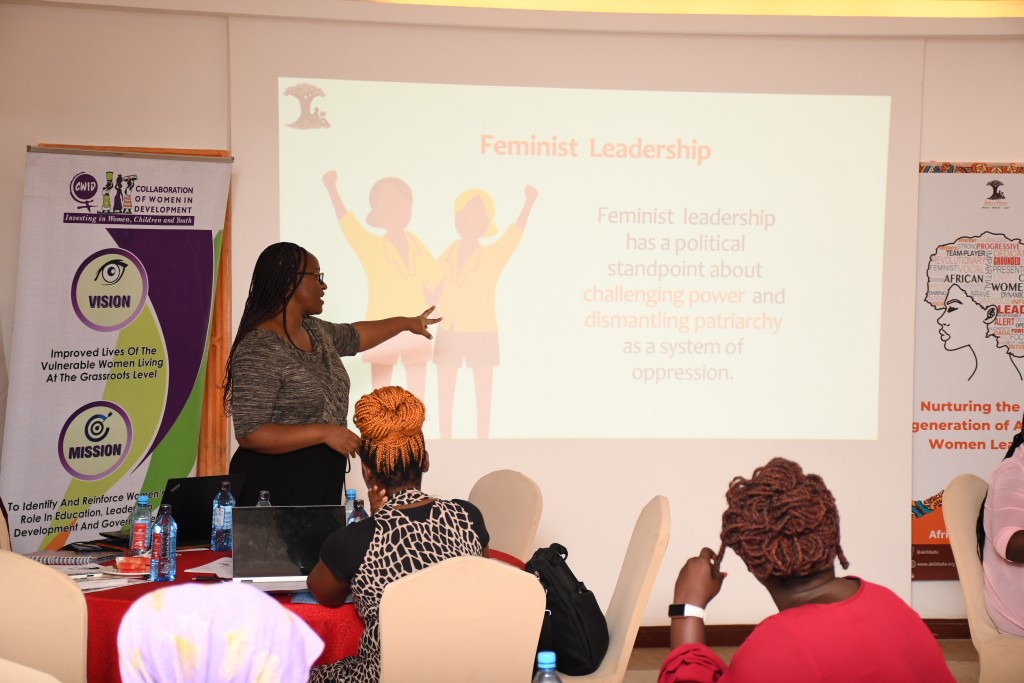
We for She Movement, Young African Grassroot Women Movement (YAGWOM), and ‘I am a Star Campaign’ members attending a Women Gaining Ground (WGG) workshop organized by Akili Dada and Collaboration for Women in Development./STEPHEN OMONDI
“We really encourage young women who are in feminism spaces to join the We For She movement to bring on board innovative ideas that will help the movement reduce teenage pregnancies in Mombasa,” said Winnie Mueni, the Group Leader.
“I have the most amazing group, we know how to co-exist with each other, know how to identify the gaps and leverage on them,” she added.
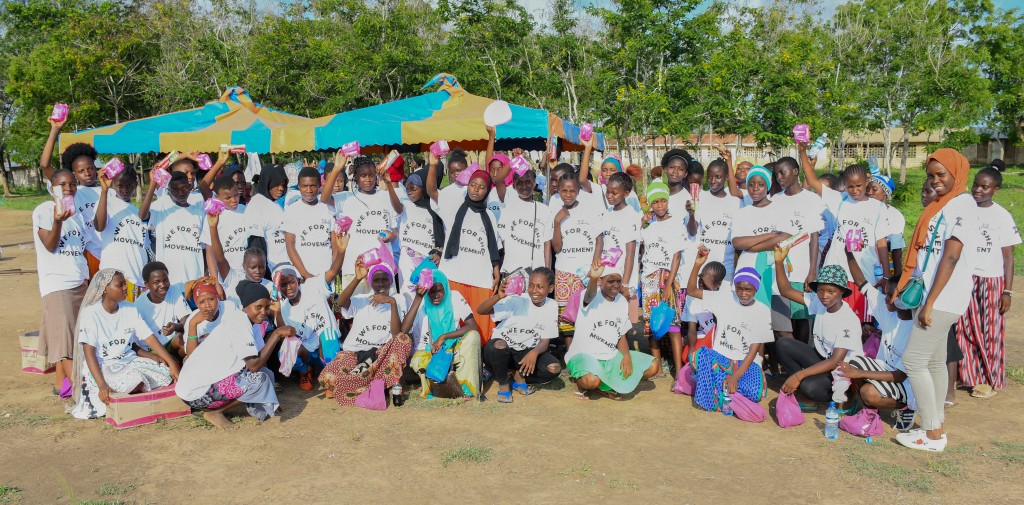
Data on Sanitary Pads
Sanitary pads have also been used as a way to get schoolgirls into having sexual intercourse with men with some being offered money for pads in exchange for sex.
According to the survey conducted by Procter & Gamble and Heart Education, 42 percent of Kenyan schoolgirls have never used sanitary towels and instead use alternatives like rags, blankets, pieces of mattress, tissue paper, and cotton wool.
The survey estimates indicate that 65 percent of females in Kenya are unable to afford sanitary towels.
It also reveals that 3 out of 5 women in the country rely on their sexual partners for pads. It goes further to reveal that 2 out of 3 pad users in rural areas are receiving pads from their sexual partners.


